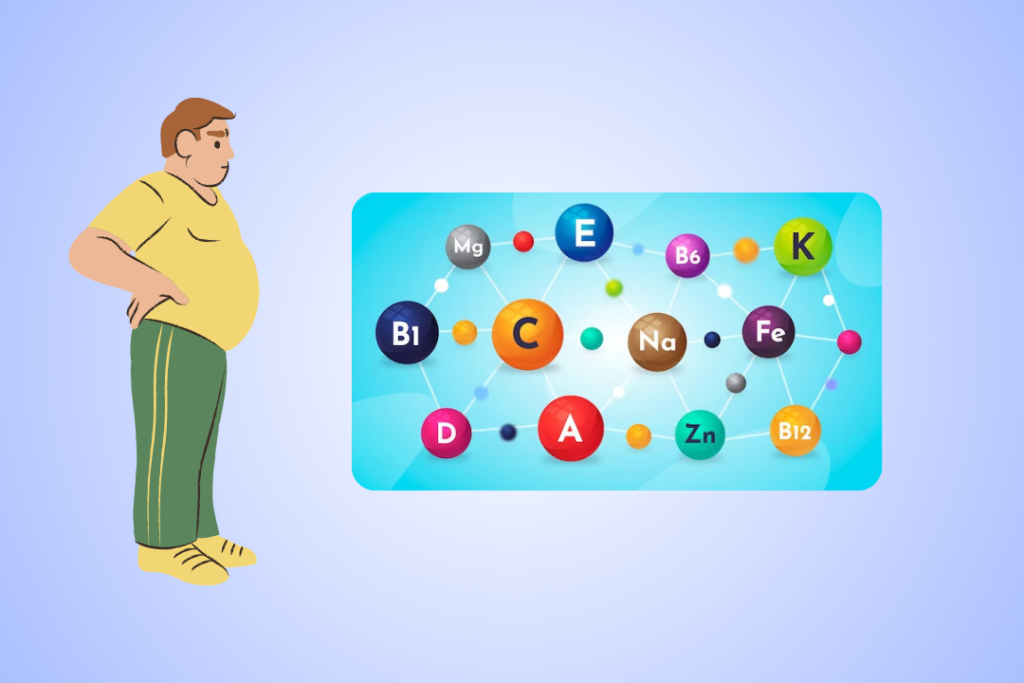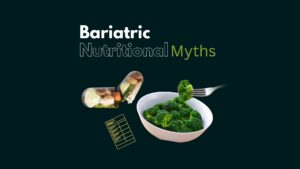
Mishitha D'souza
Bariatric Dietician & Content Writer

How To enhance essential micronutrients store post-bariatric Surgery

Micronutrients are vitamins and minerals that the body needs in little amounts for growth, health, and disease prevention. Micronutrients, commonly known as vitamins and minerals are further classified as macrominerals, trace minerals, water-soluble vitamins, and fat-soluble vitamins.
Following bariatric surgery, micronutrients, particularly vitamins and minerals, are critical for disease prevention, improved wound healing, long-term health maintenance, energy and vigour, and bone health. Bariatric surgery is carried out when a person has major health issues and diet and exercise have failed.
It can also be referred to as weight loss surgery. Individuals with a BMI more than 30 or having metabolic disorders such as diabetes and heart disease are candidates for bariatric surgery.
Laparoscopic Sleeve Gastrectomy, Mini Gastric Bypass, and Gastric Bypass Surgery are the three basic forms of bariatric surgery. Micronutrients are important in the healing process and also contribute other factors post surgery.
Vitamins essential post bariatric surgery:
Vitamin A – It is a vital nutrient, vitamin A supports numerous biological processes and is critical for maintaining overall health . Following bariatric surgery, such as a gastric bypass or sleeve gastrectomy, the need of vitamin A may rise for a variety of reasons, including maintaining the immune system, preventing dry skin, and promoting quicker wound healing due to incisions.Vitamin A is abundant in foods including milk, egg yolk, carrots, sweet potatoes, and green leafy vegetables.
Vitamin B 1 (Thiamine) – Thiamine is essential for the body’s process of breaking down carbohydrates and producing energy. Due to changes in the digestive tract following bariatric surgery, particularly gastric bypass the absorption of nutrients, including thiamine, may be impacted. Consuming foods like chickpeas, salmon, spinach, and others can help prevent thiamine deficiency.
Vitamin B12 (Cobalamin) – By assisting in the transformation of carbohydrates into usable energy, vitamin B12 is essential for energy metabolism. In order to promote energy generation and prevent weakness after bariatric surgery, where calorie intake may be restricted, making sure vitamin B12 levels are appropriate is crucial.
Following bariatric surgery, if vitamin B12 levels aren’t replaced sufficiently, the body might soon fall short on vitamin B12 due to inadequate absorption. Among the health problems that can develop are anaemia, tiredness, and weakness. To increase B12 reserves, consume foods such as milk, egg yolk, salmon, chicken etc .
Vitamin C – Vitamin C has an impact on the body’s natural processes of tissue repair and regeneration.It is necessary for the healing of incisional wounds in patients. Additionally, it gives newly created collagen tensile strength .
Consume foods high in vitamin C, such as citrus fruits , guavas, cauliflower to prevent vitamin C deficiency and hasten the healing process.
Vitamin D – Vitamin D is required for calcium absorption following bariatric surgery in order to maintain bone health. Sun exposure may be reduced during bariatric surgery, which can result in vitamin D deficiency, reducing calcium absorption and creating bone problems. Vitamin-rich foods such as eggs, milk, and oranges should be consumed .
Sunlight is the most natural and major source of vitamin D.
Zinc – Zinc aids in wound healing, immunological function, and metabolism .Adequate zinc consumption is critical after bariatric surgery for optimum tissue repair and recovery. It encourages cell generation , collagen formation, and immunological activity, all of which aid in wound healing. It is required for a healthy immune system. Maintaining normal immune function is critical after bariatric surgery, to ensure that the body may not be more vulnerable to infections and problems. Zinc aids in the creation of proteins such as keratin, which is required for healthy hair, skin, and nails. Following bariatric surgery, there is weight loss and decreased consumption of food therefore maintaining appropriate zinc levels can assist preserve the health and look of these structures.
Zinc-rich foods such as whole grains, nuts, and beans should be consumed.
Calcium – Calcium is critical following bariatric surgery as it is an essential element for bone health and density. Adequate calcium consumption promotes bone growth and maintenance, lowering the risk of fractures and osteoporosis. Calcium-rich foods such as dairy products, green leafy vegetables, salmon, spinach, and so on should be consumed to increase calcium reserves.
Magnesium – Magnesium has a role in bone production and metabolism. It acts in combination with calcium and vitamin D to promote bone health. Maintaining adequate magnesium levels is critical for improving bone health and lowering the incidence of fractures post bariatric surgery .
Magnesium levels that are adequate can help avoid muscular cramps and spasms, post bariatric surgery . Food sources such as beans , green leafy vegetables , and bananas should be consumed to increase magnesium levels .
IT IS THEREFORE ESSENTIAL TO REPLENISH THE MICRONUTRIENT STORES POST BARIATRIC SURGERY







